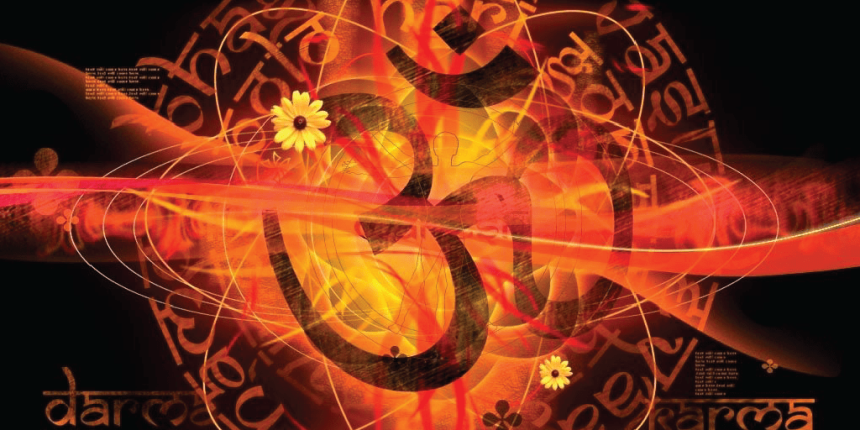Religion has played a vital role in the world’s history regardless of geography, for example, the European history is comprised of Europeans seeking to develop a modern realm in which state and religion work independently. Few centuries later, religion again played its role in the division of sub-continent into Pakistan and India.
The two nation theory, presented in 1940 became the cause for struggle of Pakistan, it was based on the fact that Hindus and Muslims are two separate nations, and Quaid-e-Azam demanded a separate homeland for Muslims on the basis of this theory. After independence, Pakistan was recognized as an Islamic Republic where as India chose secularism. Both opted hypocritical democratic political systems. The irony is that both are somehow similar to each other, regardless of whether one declares itself as a religious country and other does everything similar while remaining a secular state. There are several ingredients of secularism, out of which one that is being understood and practiced is the “privatization of faith, relegation of religious norms, practices and norms into private realm”. India’s stance to remain a secular state is contradictory to what is really practiced in India, firstly the Prime Minister, Narendra Modi, belongs to a Hindu extremist organization Rashtraya Swayemsavek Sangh. And secondly the state of minorities in India is not hidden, especially after the Citizenship Amendment Act (CAA) and the National Registration of Citizens (NCR), and the plight of Muslims whether they are in Indian Occupied Kashmir, particularly in the aftermath of abrogation of 370, or in the mainstream Indian cities.
Rashtraya Swayemsavek Sangh (RSS) not only played an important role in partition of sub-continent but its role in the politics of India in the shape of Bhartiya Janata Party (BJP) is also worth mentioning. India’s claim to be a democratic and secular state is just a delusion because a right wing extremist party in power, whose main goal is to re-establish Akhand bharat – Greater India. Any change in Indian state directly or indirectly impacts the South Asian states, because of India’s ethno-religious diversity it has Muslims, Tamils and even Bengalis, which impacts Pakistan, Sri-Lanka and Bangladesh in one way or another.
BJP’s Political History:
The impact of RSS on Indian politics is quite visible from the fact how BJP emerged as a major political party in the system in just few years, a political party who had only two seats in 1984 general elections had 117 seats in Lokh Sabha in 1991. In 1992, BJP thought that it could gain public sympathies and votes, if it is successful in selling the idea the Babri mosques is constructed on the birthplace of Ram God, it was somehow linked to the Vishwa Hindu Parishad (VHP), when in 1984 VHP aimed at liberating the Ram Janam Bhoomi. But surprisingly, those who were supporting BJP in saving the birthplace of Ram, didn’t support it in the 1993 state elections, as BJP lost badly in four states including Uttar Pradesh (Commonly called as UP) which is considered as the hub of hindus. But BJP didn’t lose its supports, in the general elections of 1996, BJP regained its 20% of the votes, and in 1998 it had 25% of the support, which was the largest ever support for BJP in its entire history. BJP learnt lessons from the 1996 elections and opted for moderation in order to gain success and to form coalition government with any other political party or parties, because the Babri mosque incident was the biggest setback to “Indian Democracy”. In 1998, with 182 Lokh Sabha seats, BJP formed coalition government, called as “National Democratic Alliance (NDA)”. So while analyzing the rise of BJP as a powerful party, it could be understood that BJP became an important right wing political party in “Secular India”, because it carried on with its Hindutva ideology with the face of Atal Bihari Vajpaye, who was a liberalist and policies were quite different in his tenure as presented by BJP earlier. But RSS in the shape of BJP continued with its agenda of Hindu extremism, issues on the constitutional status of Kashmir and eroding the Muslim laws with a civil code, Vajpayee did emerged as one of the persons who was willing to talk to Pakistan on the issue of Kashmir, but when Pervaiz Musharraf presented him the four point agenda for Kashmir he remained silent on it, which shows that Vajpayees stance of “Kashmiriyat, Insaaniyat and Jamhooriyat” was nothing more than a slogan to give boost for election campaign.
Dwindling Secularism in India:
RSS became successful in promoting Hindu nationalism in Indian politics through BJP and today Indian political affairs revolve around xenophobia and anti-Muslim sentiments, which indirectly impacts the regional countries especially, Pakistan. For the first time in decades of coalition governments in India, BJP won the 2014 elections with simple majority. A right wing Hindu nationalist party formed government in “Secular India”, questions the credibility of their secularism because the RSS – BJP romance is no secret, their willingness to revive Hindu nationalism was openly declared in 1992 when they attacked Babri mosques, although the name “BJP” was not there but RSS and Bhartya Jana Sangh (BJS) was there to demolish the mosque in the name of Ram Janambhoomi.
After Babri mosque incident, Gujarat massacre became the talk of the town in 2002, and not surprisingly Narendra Modi of BJP was the chief minister of Gujarat at the times of riots. The reason behind the Gujarat riots is connected with the construction of Ram temple in the place of Babri mosque, many Kar Sevaks (volunteers) were returning back via train, viscous fire immersed in one of the compartments of the train. The fire killed 59 Hindus and BJP government put the blame on Muslims which resulted in death of almost 1000 Muslims as a result of four months of violence and the Chief Minister of Gujarat remarked on the incident while justifying the killing and violence against Muslims as “Every action has an equal and opposite reaction”. When the corpse of Hindus reached Ahmedabad, VHP called for strike Gujarat Bandh which was backed by the BJP government. The immunity of BJP leaders to violence in Gujarat is so that Maya Kodnani called it Prakurti – Natural, she commented that violence in Gujarat is usual and Gujarat should be accepted as it is. Kodnani served as Minister for Women and Child development in 2007 but in 2009 she was arrested in charge of fueling the rioters and witnesses told the Special Investigation Team (SIT) that she was found handing the swords to protestors. In 2018 she was acquitted of all charges on her because as per High court’s decision evidence and witnesses have failed to prove Kodnani guilty. In 2020, Narendra Modi laid the foundation of temple at the place of Babri Mosque.
And in the recent past, the NCR and CAA became the first act of its nature where the “Secular India” excluded only the Muslims to be eligible for the Indian citizenship whereas rest of the people belonging to Hindu, Sikh, Buddhist, Jain, Parsi and Christian religion are eligible for the Indian Citizenship. Consequently, the citizens of secular India came out to protest against the unjust act, but they were not only faced with violence but the state shutdown internet in various part of the country, imposed a colonial era law to prohibit the gathering of more than four people, imprisoned thousands of the protestors and killed at least 23 people. However, the protest broke down due the COVID-19 lockdown yet small scale protests continued in various parts of the country.
In conclusion, the BJP’s booming power is a threat not only to the Indian Secularism but it also poses a threat to the regional countries, with its Akhand Bharat ideology. With the BJP-RSS nexus, India is not safer for minorities especially the Muslims. Even though multiple reports on free journalism and human rights have identified the situation of human rights in India, yet the international community is silent. This silence is empowering the Hindutva extremists to continue towards a Hindutva state.






